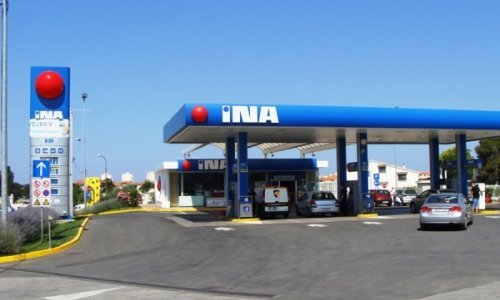The sale of a 25 percent stake plus one share in INA to Hungary's MOL would have been a good deal if what was envisaged by strategic development documents had been implemented, and the fact that it did not is not due to the agreement signed by the Ivica Racan cabinet and MOL, Ljubo Jurcic, Economy Minister in the former coalition government led by the Social Democratic Party, said in parliament on Monday.
Jurcic was testifying before a parliamentary commission investigating the circumstances under which INA's shares were sold in 2003.
"We had no influence whatsoever on INA's operations in the period between 2003 and 2010. The deal was well-conceived, envisaging the modernisation of the refineries, research, oil rigs. The job was good, because everything was in Croatia's hands, but why it did not end well is a different matter," Jurcic said when asked by Goran Maric of the ruling Croatian Democratic Union (HDZ) if he now believed that the sale of a strategic stake in INA had been good for the national economy.
Explaining why he had advocated selling a strategic stake in INA, Jurcic said that INA had never been managed by politicians, but by different interest groups "that swore to be working to the country's benefit".
Jurcic said that he saw no other way to put the situation in INA in order but to allow a strategic partner to enter the company's ownership structure that would be greatly interested in the company operating as well as possible in order to protect its own investment.
When asked by Ana Lovrin of the HDZ if all bidders had known about reserved matters and the fact that the strategic partner would appoint the company's financial manager, Jurcic said that at the time when they submitted their bids, all bidders received defined contracts, containing all reserved matters and a clause saying that the strategic partner would have two seats each in INA's management and supervisory boards.
The Council for INA's privatisation decided on 12 June 2003 to offer the strategic partner the post of financial manager, Jurcic said.
When asked by Zlatko Koracevic of the Croatian People's Party (HNS) if MOL had paid a premium for management rights, Jurcic said that the premium for management rights was always paid.
However, he did not answer Koracevic's question if the strategic partner had paid the management premium also for the last amendment of the Shareholders' Agreement whereby MOL acquired such management rights as if it were INA's majority owner.
"You have to investigate that on your own," he said, adding that he had suggested that the government sell a majority stake in INA to avoid speculation of wrongdoing regarding the agreement.
Testifying before the parliament's commission, former INA Management Board chair Tomislav Dragicevic said that he had warned former Deputy Prime Minister Damir Polancec that INA was buying gas at high prices and selling it cheaply, which resulted in its losses climbing to HRK 2.5 billion, but that Polancec had only answered that it was a lost opportunity.
Dragicevic made the statement when asked by Goran Maric of the HDZ to explain why the company's debt in 2008 was so high.
Dragicevic said that it was because of opposition from the government that INA did not raise gas prices until 2009, when it was requested to do so by MOL.
When asked why INA's debt to the state and suppliers increased after MOL entered the company's ownership structure, Dragicevic said that there was obviously a tacit agreement that INA should invest money into completing investments rather than into paying excise taxes to the state.
"I don't know where such a decision was made, it was obviously a tacit agreement because the (INA) Management did not make such a decision," Dragicevic said, adding that the debt to the state and suppliers had been settled almost entirely in agreement with the current Deputy Prime Minister Ivan Suker.
Dragicevic said that MOL had proven a good strategic partner, that despite some delays the agreed plans had been carried out, that there was no obstruction from MOL in that regard, and that the INA Management Board adopted decisions by consensus.
Dragicevic also said that INA's core enterprise in 2000 had around 13,000 employees and that INA Group had around 15,000 employees. Currently, the core enterprise employs around 10,000 workers and the management plans to reduce that number to 7,000, without laying off workers, said Dragicevic.
The parliamentary commission of inquiry will meet again on Tuesday, when it is expected to hear the incumbent Deputy PM and Finance Minister, Ivan Suker, former Deputy PM and Economy Minister Damir Polancec, and INA CEO Zoltan Aldott.

































